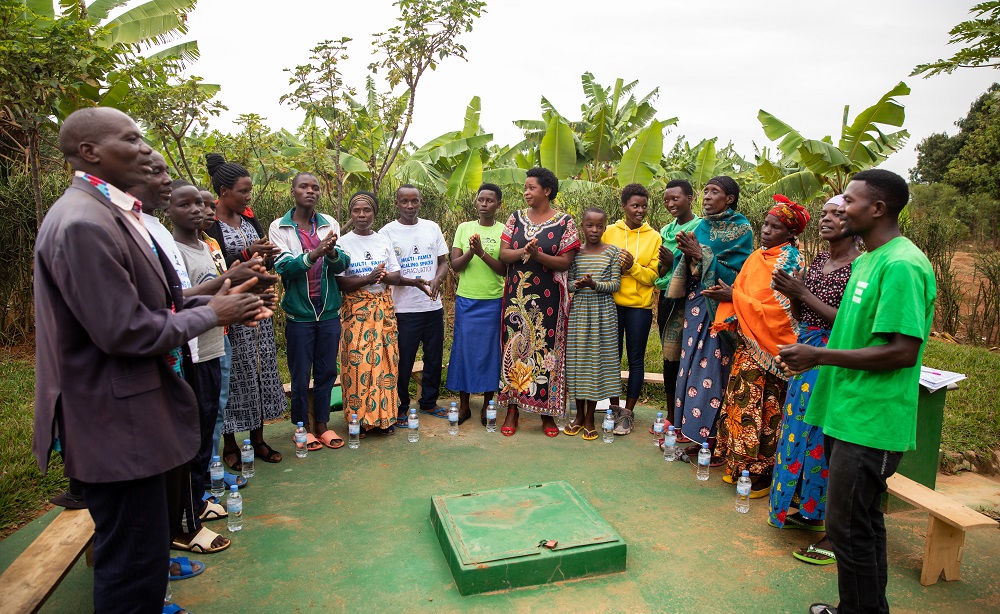Programme pillars

Interpeace worked with experts from the Centre for Sustainable Peace and Democratic Development (SeeD) from Cyprus and a team of national experts to design structured psycho-social interventions, commonly known as “Protocols,” that guide the trauma healing and peace processes. The protocols had to be grounded in the Rwandan context and culture but enriched with global good practices. Those include Resilience-oriented therapy protocol, Multifamily therapy protocol, Adaptation to sociotherapy protocol, Collaborative Livelihoods (COLIVE) protocol, Prisoner rehabilitation and reintegration curriculum, Social and emotional skills curriculum, Conflict mediation and transformation curriculum as well as Positive masculinity and positive parenting curriculum. Through those tools, the programme:
- Offers healing spaces to Genocide survivors, Genocide perpetrators and their descendants to stimulate healing dialogue and truth-telling to restore trust, tolerance, and ensure mutual healing;
- Strengthens mental health awareness and service provision through support to existing healthcare services infrastructure, especially at the local level;
- Promotes family cohesion and addresses intergenerational transmission of genocide legacies;
- Stimulates sustainable economic livelihoods of individuals and communities through collaborative initiatives that are both sources of income but also platforms for continuous peer-support and healing,
- Promotes psychological rehabilitation and reintegration of prisoners; and
- Strengthens the capacities of local leaders, teachers, and correctional officers on trauma-sensitive leadership.
The programme is aligned with national priorities, in particular the decentralisation of hental Health service provision as well as strengthening community cohesion and resilience. To this end, Interpeace and its local partners have created an MHPSS coordination Snetwork in the districts of the programme operations. The objective is to pilot this model with different actors to build an integrated, multi-systemic, and complementary support system at national and decentralized levels.
With funding from the Government of Sweden, the programme is delivering support in Ngoma, Nyagatare, Musanze, Nyabihu and Nyamagabe districts in partnership with local organisations such as Prison Fellowship Rwanda, Haguruka and Dignity in Detention Rwanda. Building on a successful European Union-supported pilot in Bugesera district (October 2020-December 2022), this initiative epitomises Interpeace’s commitment to healing and resilience in Rwandan communities.